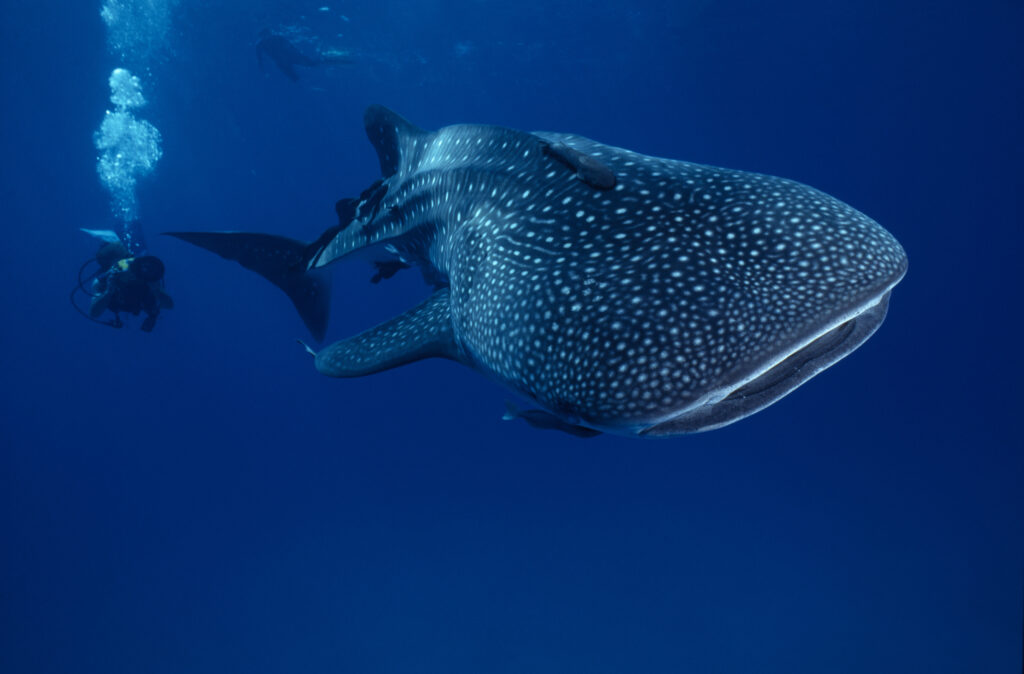Apex predators are animals that are at the top of their respective food chains. Examples of apex predators include tigers, polar bears and some species of shark. All apex predators, and predators more broadly rely heavily on their highly tuned senses to track and catch prey.
Sharks are no different in this regard, but which senses do they rely on the most? In this blog, we’ll explore the senses that sharks use to catch their prey, what makes them unique and what similarities they share with other fish.
How far can sharks smell?
Sharks have an incredible sense of smell, among the best in the animal kingdom. They use their sense of smell as their primary weapon to track and catch their prey. Sharks can detect smells at between one part per 25 million and one part per 10 billion, depending on the chemical, and the species of shark. This means some species such as Great white sharks can smell about one drop of blood in a small swimming pool.
Sharks use an organ called the olfactory bulb that is located in their noses to detect blood in the ocean.
Do sharks have good eyesight?
Because of their incredible sense of smell, people often assume that sharks have poor eyesight, but this is false.
Most sharks have sight that becomes more acute when 15 meters or closer to an object, this is when the sense of sight is their dominant sense. Some species of deep-water sharks even have larger eyes that detect very faint glimmers of light.

The reason that a shark’s eyesight isn’t better, is simply that they don’t need it to be any better! They’ve survived for at least 450 million years by relying primarily on their sense of smell.
How well can sharks hear?
Sharks have a very fine-tuned sense of hearing which is more sensitive to low frequencies (10-800Hz). This is because injured or dying fish let out sounds at this frequency, meaning that sharks can determine where an easy meal might be.
They can hear sounds from a fair distance away too, despite only being a tiny opening in their head. According to University College London, sharks can hear sounds from up to 800 feet away.
How sharks use their sense of touch
Much like humans, sharks have touch receptors all over their bodies that can detect whenever something is close enough to be touching them. For smaller sharks, such as the Port Jackson shark, this could be predators or prey, so potentially the difference between life or death.
What do sharks taste?
You might think that because a shark is having to work hard for every meal, they can’t afford to be picky but you couldn’t be further from the truth.
Sharks have taste receptors in their mouths that detect taste and are known to reject meals that are distasteful. Some scientists suspect this is why shark attacks on humans are incredibly rare.

Electro-sensory system & lateral line
Sharks possess a remarkable electro-sensory system, relying on specialised cells called electroreceptors concentrated in the ampullae of Lorenzini around their head. These receptors detect electric fields generated by living organisms, aiding sharks in hunting by sensing the bioelectric fields of potential prey, even in darkness.
Additionally, sharks use a lateral line, a network of sensory cells along their body, to detect water movements, pressure changes, and vibrations from nearby objects – this is how the Blind Cave Fish sees.
This dual sensory adaptation enhances sharks’ awareness, facilitating efficient navigation and contributing to their success as predators in diverse underwater ecosystems. The electro-sensory system and lateral line showcase the extraordinary capabilities that make sharks highly adapted to their aquatic environments.
It is clear to see that sharks, as apex predators, rely on a combination of finely tuned senses to navigate and hunt in their diverse underwater habitats.
While their incredible sense of smell serves as a primary tool for tracking prey, their eyesight is not to be underestimated, allowing them to see between 10 and 15 meters even in murky waters.
During your next visit to Bristol Aquarium, you can not only appreciate the beauty and danger of sharks but also their incredible adaptations that have allowed them to stay at the top of the food chain for almost half a billion years!
